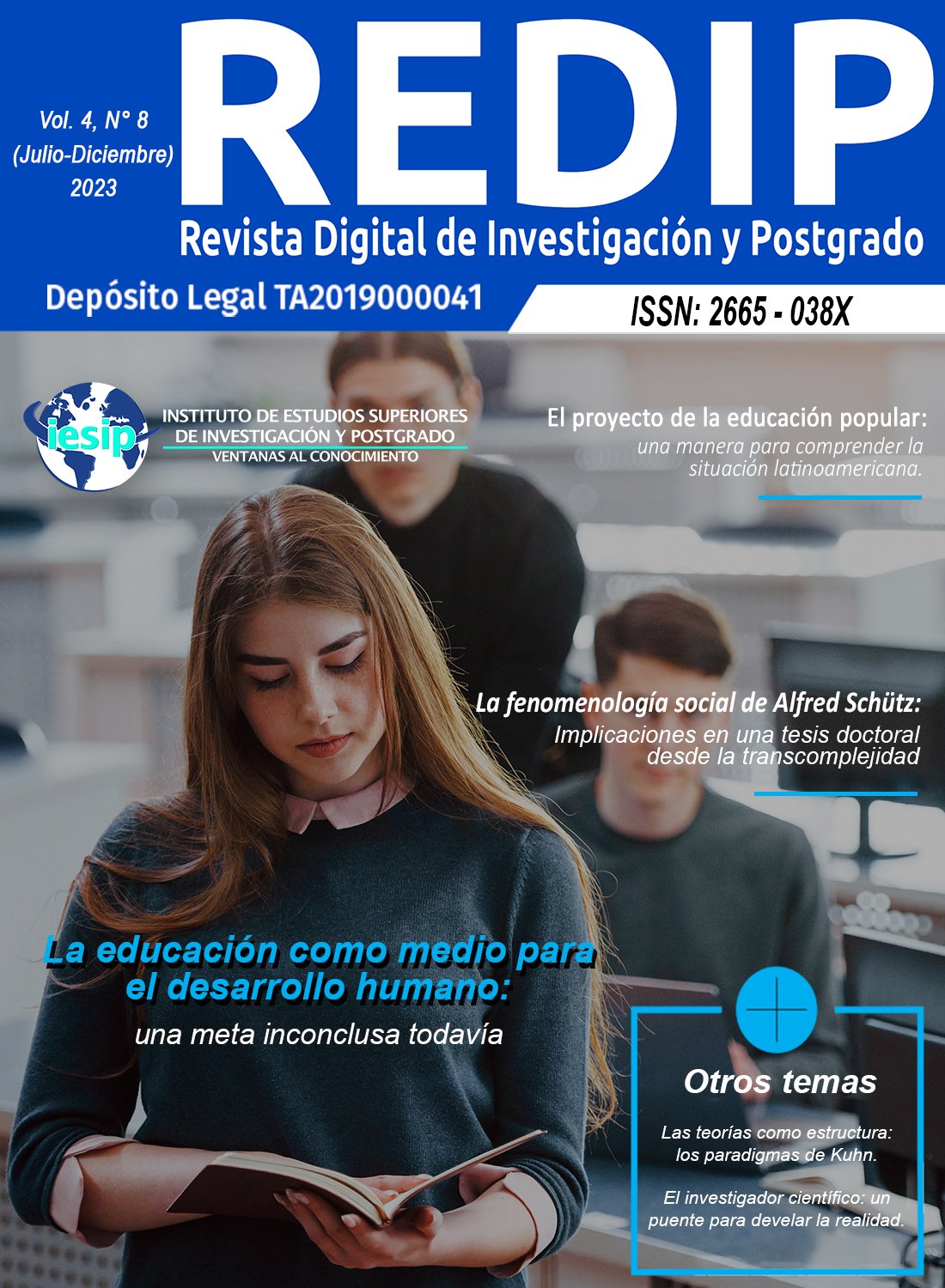The scientific researcher
A bridge to unveil reality
DOI:
https://doi.org/10.59654/xv6tv290Keywords:
philosophy, psychology, transcomplexity, researcher, process.Abstract
The scientific researcher is the one who crosses the horizon to find the truth of knowledge, using his metacognitive abilities, assimilating the results found. Therefore, he/she must possess certain skills such as curiosity, comprehension, organization, reasoning skills, in order to contribute scientific products that transform society. Likewise, the transversality of sciences such as philosophy and psychology has made it possible to emanate diverse ontological approaches in order to unveil the phenomenon to be studied. However, the triad of philosophy, psychology and transcomplexity is required in order to allow the confluence of multidimensionality and critical thinking, thus, to travel new paths to make science more humane. The intention of this study is to generate a theoretical corpus as a tool for recursive reflection in order to reveal the importance of the researcher as the protagonist of a cognitive process that contributes to the advancement of the knowledge society. It is the product of a documentary hermeneutics with the support of the transcomplex epsiteme, and theoretical contributions of authors such as: Esteban (2015), Morin (1999), Villegas (2012), Husserl (1999). It is concluded that the transcomplex narrative, the dialogic exercise allow the interrelation of philosophy and psychology to overcome a dark past and move towards a scientific future in a more humane way from the internality.
Downloads
References
Esteban, K. (2016). Fundamentos filosóficos de la psicología científica. Horizonte de la Ciencia, 6(11), 71–84. https://revistas.uncp.edu.pe/index.php/horizontedelaciencia/article/view/36
Husserl, E. (1999). La Idea de la fenomenología. Springer.
Morin, E. (1995). Introducción al pensamiento complejo. Editorial Académica española
Tsoukas, H and Robert, Ch.(2011). Philosophy and Organization Theory. Emeral-Books
Villegas, C. (2012). La Transcompejidad como medio de pensar. Editorial Académica Española.
Wundt. W. (1920). An Introducción Psychology. Great British
Zaá, J. (2015). Filosofía de la Trasncomplejidad. UBA- REDIT. https://reditve.wordpress.com/2020/02/21/transcomplejidad-desde-la-filosofia/#:~:text=Es%20un%20estado%20de%20conciencia,y%20f%C3%ADsicas%20del%20ser%20humano.
Published
Issue
Section
License
Copyright (c) 2023 Revista Digital de Investigación y Postgrado

This work is licensed under a Creative Commons Attribution-NonCommercial-ShareAlike 4.0 International License.










